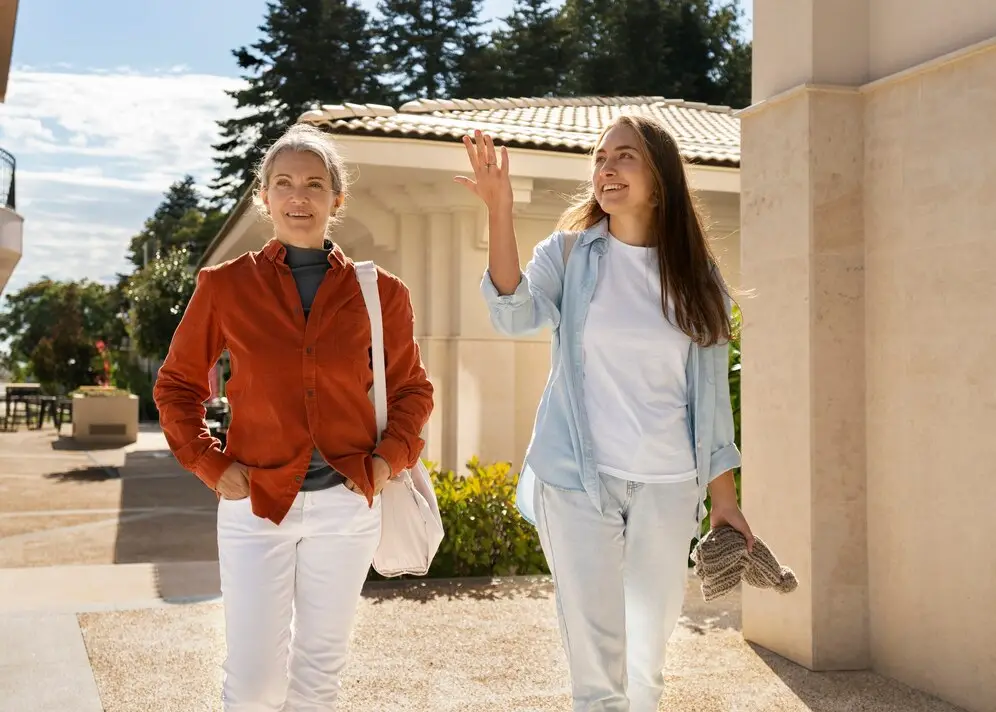When Linda, my stepmother, passed away, I never imagined she’d leave me her $2.5 million vacation home. The news hit like a thunderbolt. I was her stepchild, not one of her biological daughters. Amanda and Becca, her golden children, each inherited just $5,000—a mere fraction of what I received.
Growing up, my relationship with Linda was distant at best. She wasn’t openly cruel, but she wasn’t loving either. I felt like a guest in my own home, often overshadowed by Amanda and Becca. My father’s passing when I was 18 only deepened the divide between us. After that, I distanced myself entirely from my stepfamily and built my own life, leaving those painful memories behind.
So, when Linda’s lawyer called me with news of her will, I was stunned. The house, a sprawling vacation property perched on a lakeside, was now mine. My first thought was disbelief. Why would Linda, who had always seemed indifferent toward me, leave me such a generous gift?
The Fallout
The inheritance ignited immediate backlash.
Amanda accused me of manipulating Linda in her final years, a claim that was as absurd as it was hurtful. Becca took to social media, posting cryptic but cutting messages that painted me as greedy and undeserving. Relatives who had rarely spoken to me were suddenly calling, pressuring me to give up the house or at least share the proceeds with Amanda and Becca.
I was bewildered. I hadn’t asked for the house, nor had I expected it. In truth, I hadn’t spoken to Linda in years, other than sending polite holiday cards. I couldn’t fathom what had motivated her decision.
Searching for Answers
Determined to make sense of it all, I decided to visit the house. The moment I stepped inside, memories of summers spent there with my dad flooded back. The home was beautiful but quiet, almost hauntingly so.
For days, I searched for clues that might explain Linda’s decision. I went through drawers, closets, and old photo albums, hoping for some sign of her thought process.
Then, tucked away in a locked drawer in the study, I found it—a letter addressed to me.
The Letter
“Dear Carol,
By the time you read this, I hope you’ll understand the choice I made.
You might not believe it, but I always admired your strength. When your father and I married, I was unprepared for how to step into a motherly role, especially after your mom’s passing. I poured my energy into Amanda and Becca, partly out of guilt for the struggles they’d faced after my divorce, and I regret that I didn’t make more room for you.
I want you to know that your father loved you deeply. He often told me how proud he was of the young woman you were becoming. After he passed, I found myself thinking about how much you deserved but hadn’t received—from me, from life, from our family.
This house was his favorite place, and I know it holds memories for you, just as it does for me. In leaving it to you, I hope to give you something I never could during my lifetime: a sense of belonging and acknowledgment of your place in our family.
Please don’t think of this as an apology. It’s a recognition of your worth and a small attempt to honor the bond we never quite formed.
Take care of this house and let it bring you peace.
Warm regards,
Linda”
A New Perspective
As I finished reading, tears welled up in my eyes. Linda’s words brought a mix of emotions—sadness for the relationship we never had, gratitude for her unexpected gesture, and a sense of closure I didn’t know I needed.
Her letter didn’t erase the pain of the past, but it offered context. It wasn’t about favoritism or guilt; it was about acknowledgment. Linda had seen me, even if she couldn’t express it during her lifetime.
Dealing with the Backlash
The letter gave me clarity, but it didn’t quiet the storm brewing among Amanda, Becca, and the rest of the family. When I shared the contents of the letter with them, Amanda dismissed it as a fabrication, while Becca accused me of trying to justify my “greed.”
I decided not to engage in their anger. I couldn’t change how they felt, and I wasn’t obligated to defend Linda’s choice. The house was hers to give, and she had chosen to give it to me.
Instead, I focused on what Linda had written—her intention for the house to bring me peace.
Moving Forward
Today, the house stands as both a refuge and a reminder. It symbolizes reconciliation, not just with Linda, but with a part of my past I had long avoided.
While Amanda and Becca continue to harbor resentment, I’ve chosen to let go of the negativity. I’ve offered to help them financially in small ways, but they’ve refused, holding onto their anger.
For me, the house represents a second chance—not to rewrite history, but to build a future grounded in understanding and healing.
Linda’s letter taught me an invaluable lesson: sometimes, the gestures we make after we’re gone can say more than the words we fail to speak in life.

